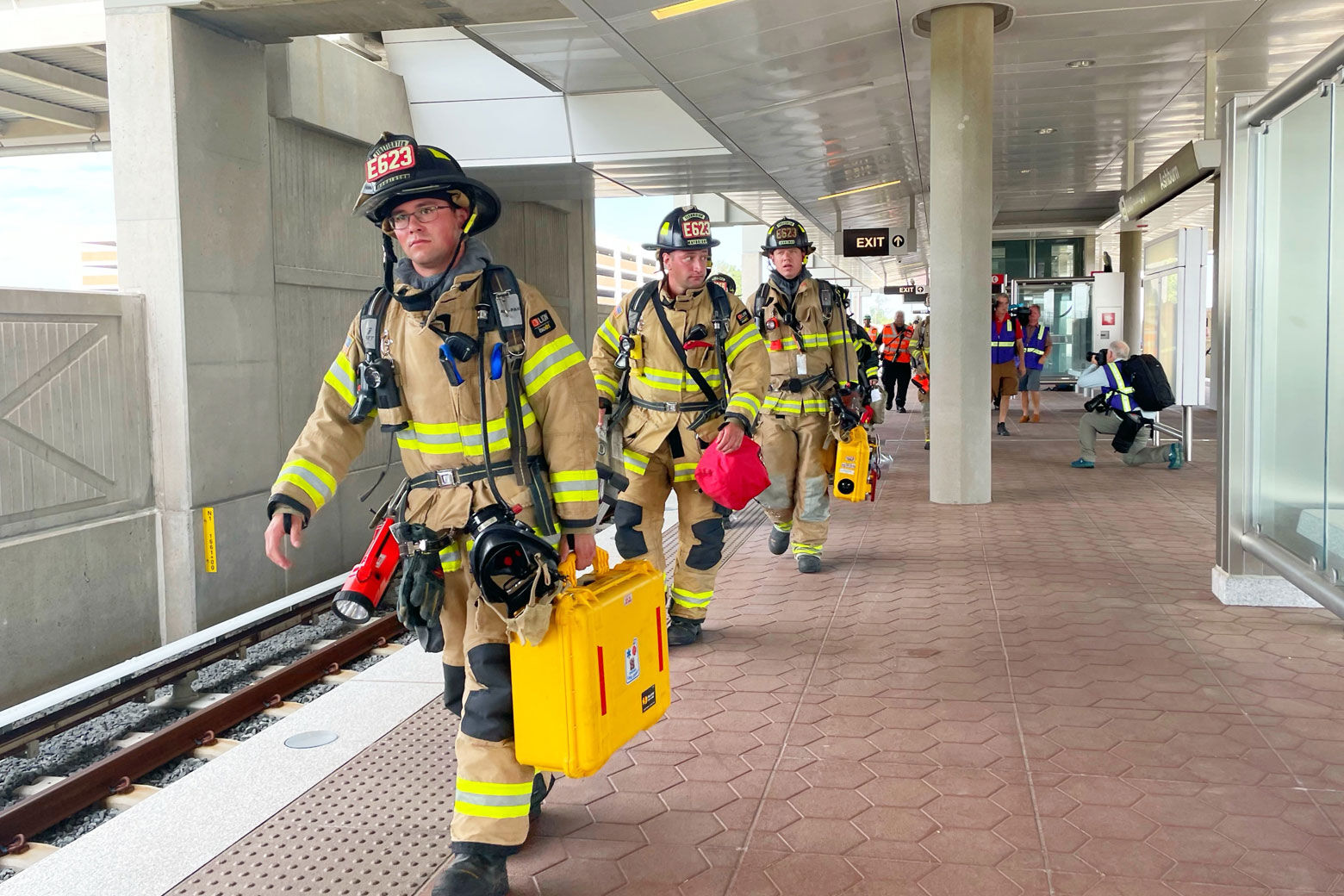
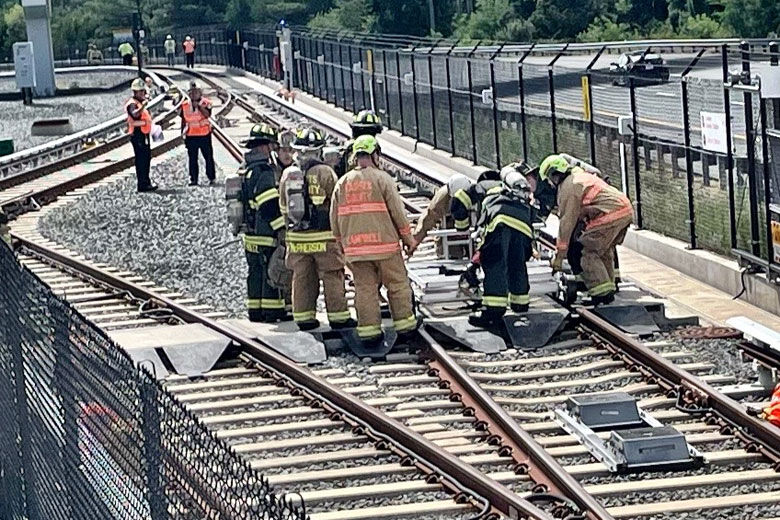
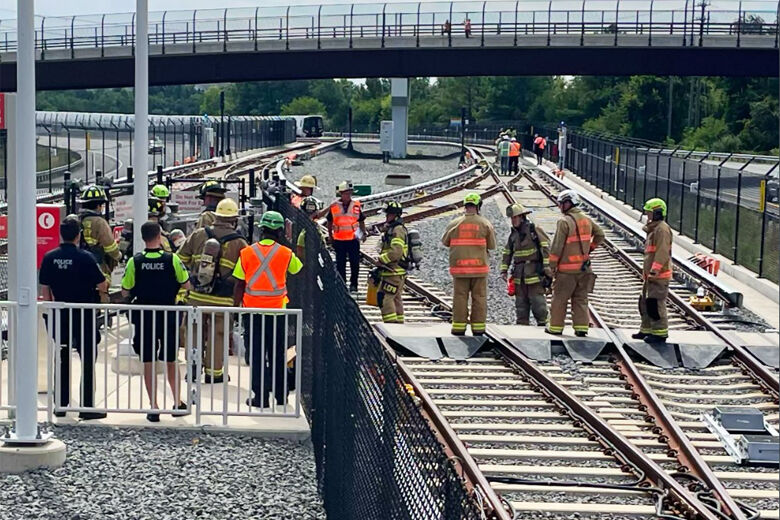
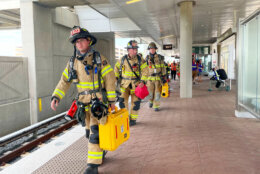
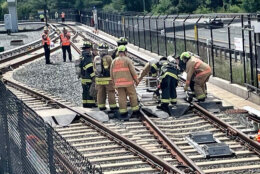
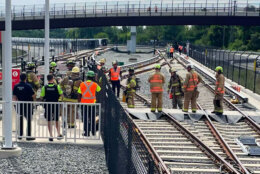
A Metro emergency drill designed to provide first responders from Loudoun and Fairfax counties the chance to practice skills they’d use during a rail system emergency was delayed by a real-world situation — rust on the soon-to-open Silver Line tracks at the Ashburn station.
The drill was scheduled to begin Wednesday at 8 a.m. More than two hours later, Metro safety officials had a difficult time getting a good connection for the safety equipment that’s designed to alert employees and first responders that 750 volts of electricity isn’t running through the system’s third rail.
Rust on tracks made it difficult for @wmata’s crew to get a good connection for safety equipment. Metro says once test trains start running, rust won’t be a problem. pic.twitter.com/VlseDzdSAA
— Neal Augenstein (@AugensteinWTOP) August 17, 2022
By about 10:30 a.m., with the safety equipment secured and the energized third rail turned off, the emergency drill was underway.
“That was an unexpected surprise, but we learned big time today,” said Bob Hester, senior planning and exercising specialist with Metro’s Office of Emergency Preparedness.
Wednesday’s was the first major emergency drill on the Silver Line extension, which is slated to open in October.
The 11-mile stretch of track extending the Silver Line past Wiehle Avenue, including to Dulles Airport and two stations in Loudoun County, has largely sat unused since being installed. In June, the Metropolitan Washington Airports Authority, which built the Phase 2 project, handed the reins to Metro, to begin the system’s final testing and preparations.
Hester said the rust will be a non-issue during future test exercises, and once trains begins daily testing.
“Fortunately, when you’re running trains on a regular basis it’s not an issue, but since we haven’t been running trains out here for several years, it’s one of those things that popped up,” said Hester. “For the next exercise, it’s something we’ll be paying attention to.”
Loudoun Co. responders prepare
In the make-believe-emergency-scenario, the first agency to arrive after the mock dispatch for a train derailment was Loudoun County Fire and Rescue. Dulles International Airport straddles Loudoun and Fairfax counties; emergencies near the the Ashburn and Loudoun Gateway Metro stops will be under Loudoun’s jurisdiction.
While Fairfax County and the Metropolitan Washington Airports Authority have had stations in their jurisdictions, until now Loudoun County has played an assisting, rather than primary, role.
“We’ve been preparing for rail to Loudoun for probably seven or eight years now,” said James Williams, assistant chief of operations for Loudoun County Fire and Rescue.
He said the agency has a state-of-the-art mockup at its facility: “We have two rail cars, and a full track mockup with third rail, and the trains, so we have the ability to train at our own facility.”
In addition, Loudoun Fire has worked with WMATA and done its online training.
“And, we’ve had the opportunity to access these stations in Loudoun County for probably close to a year,” said Williams. “We’ve sent our entire operational force of responders through different training scenarios, here at the actual stations.”
WTOP’s Carrie Shokraei contributed to this report.








